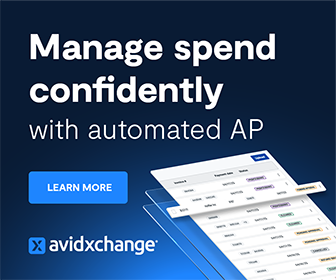Are you preparing to move out of the private sector and step into a public company accounting role? Such a change can be exciting and help you move closer to your long-term career goals.
However, it will also come with its own unique set of challenges and opportunities. Whether you’re a controller, CFO, or finance professional, you need to embrace a different mindset and expand your skill set. Here’s how to make the leap from private to public.
Accept That You Are a Lifelong Learner
Every degree and certification you’ve obtained is an achievement that deserves to be celebrated. However, you should never view any of your accolades as the end of your learning journey. Accept that you are a lifelong learner, a role that comes with the territory of being a successful financial professional.
Here are some tips to help you live out this concept in your new role:
- Stay curious and commit to continuous learning
- Follow industry news and trends to understand the public company landscape
- Don’t be afraid to ask questions
No one expects perfection from day one. Your new peers and bosses simply want you to show up hungry and ready to adapt.
Brush Up on Regulatory Differences
Public companies face a level of regulatory oversight that private businesses don’t. Familiarize yourself with these nuances so you can effectively transition into your new role. Some key areas to learn include the following:
- SEC Filings: Understand requirements and forms like Form 10-K and 10-Q
- SOX Compliance: Make sure you know the Sarbanes-Oxley Act and key provisions that apply to your new company
- GAAP Standards: While GAAP applies to many private companies, public companies must follow it more rigorously
Start by reviewing your company’s recent filings or participating in a regulatory compliance workshop to boost your confidence. You’ve probably heard of many of these concepts already, but it can be helpful to refresh your memory in the context of your new role.
Sharpen Your Reporting Skills
Financial reporting takes on greater significance in a public company role. Reports are for parties such as:
- Internal stakeholders
- Shareholders
- Analysts
- Regulatory bodies
Learn how to create and analyze financial statements that are clear, accurate, and transparent. Build skills in variance analysis, forecasting, and earning presentations so that you can more effectively serve shareholders.
You’ll also need to familiarize yourself with the new employer’s preferred reporting software. Hopefully, the software was mentioned in the job description or during the interview process. If so, proactively begin working with it. You may also want to consider enrolling in classes on the software if available.
Adapt to Increased Scrutiny
Get ready to operate under a magnifying glass. Auditors and shareholders closely examine every financial decision and report. The good news is that you are hopefully stepping into a stable situation with established internal controls.
Still, it’s your responsibility to learn those policies and ensure you are following them to the letter. You’ll also need to be transparent with peers, regulators, and shareholders. If you uncover an error, own it and fix it. Honesty builds trust with stakeholders.
Prepare for Cultural Shifts
The pace of public companies will be different than what you are used to, especially if the new employer is much larger than the private entity you worked for in the past. Prepare for a fast-moving and highly transparent culture.
To thrive, you’ll need to embrace the concepts of teamwork and collaboration with other departments. Get to know the company’s processes and deadlines so that you can adapt to the faster pace. You don’t want to be caught off guard or stumble by missing a deadline.
Set realistic expectations for yourself. It’s going to take time to adapt to these shifts. Focus on getting a little better every single day, and always remain open to feedback so you can integrate into the new culture.
Expand Your Network
A strong professional network is extremely valuable when navigating the complexities of a public company role. Surround yourself with experienced peers who can help you understand and apply important regulatory concepts to your new job.
You can join professional organizations to quickly expand your network. You should also use the organic approach, which involves getting to know your new coworkers and executive team members.
Platforms like LinkedIn can be great tools for staying in touch with former colleagues and connecting with mentors. You can also use LinkedIn to build bridges between your previous and current organizations.
Embrace Your New Role and Thrive
The transition from private to public company accounting will likely pose some hurdles. However, you’ve worked your entire career for this and are more than up to the challenge.
With that in mind, remember to embrace the road ahead and be adaptable. You need to be willing to step outside of your comfort zone as you learn new skills that help you thrive as a public company financial professional.




